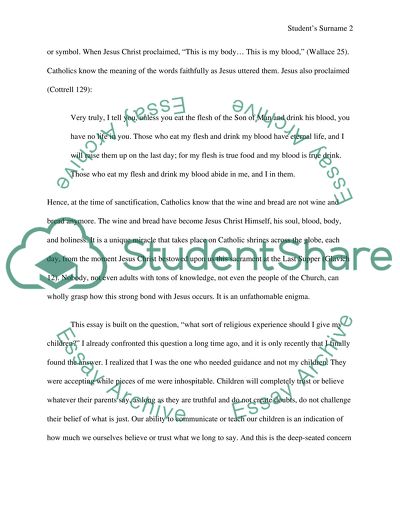Cite this document
(“What sort of religious experience should I give my children Research Paper - 1”, n.d.)
What sort of religious experience should I give my children Research Paper - 1. Retrieved from https://studentshare.org/religion-and-theology/1614459-what-sort-of-religious-experience-should-i-give-my-children
What sort of religious experience should I give my children Research Paper - 1. Retrieved from https://studentshare.org/religion-and-theology/1614459-what-sort-of-religious-experience-should-i-give-my-children
(What Sort of Religious Experience Should I Give My Children Research Paper - 1)
What Sort of Religious Experience Should I Give My Children Research Paper - 1. https://studentshare.org/religion-and-theology/1614459-what-sort-of-religious-experience-should-i-give-my-children.
What Sort of Religious Experience Should I Give My Children Research Paper - 1. https://studentshare.org/religion-and-theology/1614459-what-sort-of-religious-experience-should-i-give-my-children.
“What Sort of Religious Experience Should I Give My Children Research Paper - 1”, n.d. https://studentshare.org/religion-and-theology/1614459-what-sort-of-religious-experience-should-i-give-my-children.


